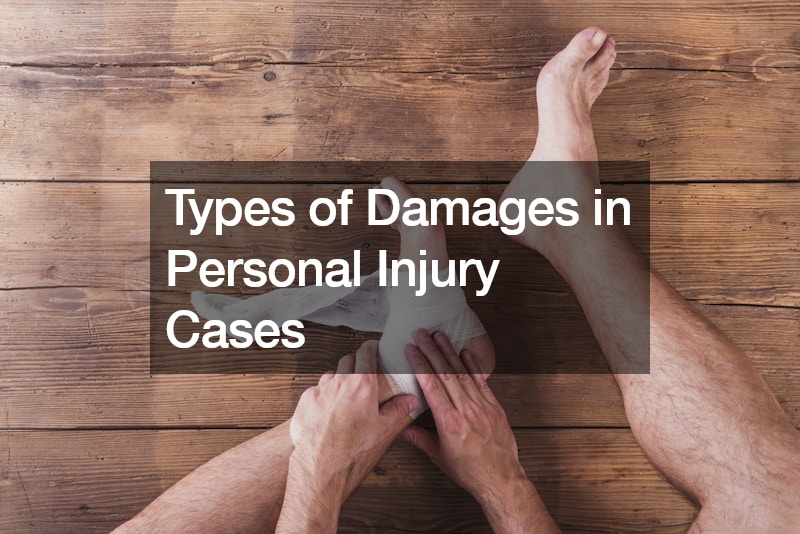When someone is injured due to another party’s negligence or intentional actions, they may seek compensation through a personal injury lawsuit. Here are the main types of damages typically awarded in personal injury cases:
Economic Damages
Economic damages are intended to compensate the injured party for quantifiable financial losses. These damages cover a wide range of expenses directly related to the injury, including:
- Medical Expenses: This includes past, current, and future medical costs related to the injury. It covers hospital stays, surgeries, doctor visits, prescription medications, physical therapy, and any other necessary medical treatments.
- Lost Wages: If the injury causes the plaintiff to miss work, they can be compensated for the income lost during that period. This also includes loss of earning capacity if the injury affects the plaintiff’s ability to work in the future.
- Property Damage: If any personal property was damaged in the incident, such as a vehicle in a car accident, the plaintiff can seek compensation for repair or replacement costs.
- Out-of-Pocket Expenses: These can include a variety of incidental expenses, such as travel costs to and from medical appointments or costs for in-home care services.
Non-Economic Damages
Non-economic damages compensate for more subjective, non-monetary losses that are harder to quantify but significantly impact the plaintiff’s quality of life. These include:
- Pain and Suffering: This covers the physical pain and discomfort experienced as a result of the injury. The amount awarded can vary widely depending on the severity and duration of the pain.
- Emotional Distress: Compensation for psychological impacts, such as anxiety, depression, and trauma resulting from the incident and injury. This can also include compensation for the loss of enjoyment of life if the injury prevents the plaintiff from participating in activities they once enjoyed.
- Loss of Consortium: If the injury negatively affects the plaintiff’s relationship with their spouse, such as loss of companionship, affection, or sexual relations, the spouse may be entitled to compensation.
Punitive Damages
Punitive damages are awarded in cases where the defendant’s actions were particularly egregious or malicious. Unlike economic and non-economic damages, which aim to compensate the plaintiff, punitive damages are designed to punish the defendant and deter similar conduct in the future. These damages are not commonly awarded and are typically reserved for cases involving gross negligence or intentional harm.

Understanding the types of damages available in personal injury cases is crucial for plaintiffs seeking fair compensation. Economic damages cover quantifiable financial losses, non-economic damages address more subjective impacts on quality of life, and punitive damages serve as a deterrent for particularly harmful behavior. By comprehensively addressing these different types of damages, personal injury law aims to provide holistic compensation for those harmed by another’s actions.






